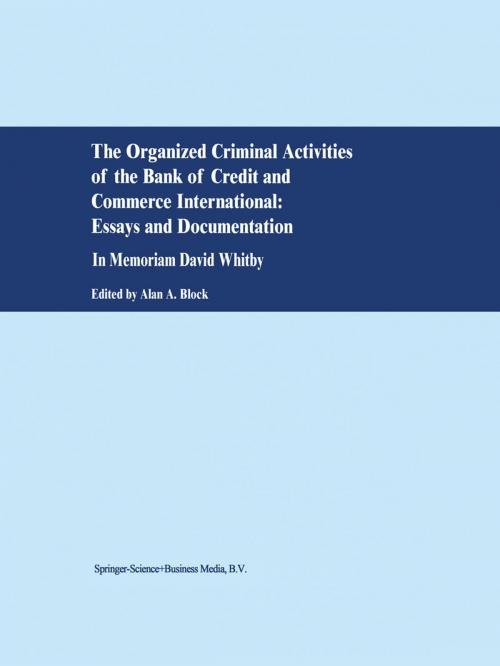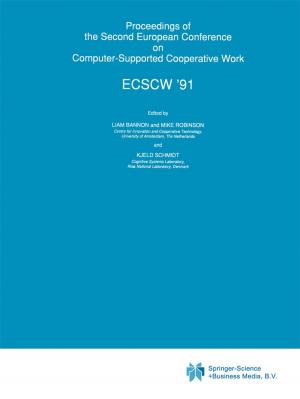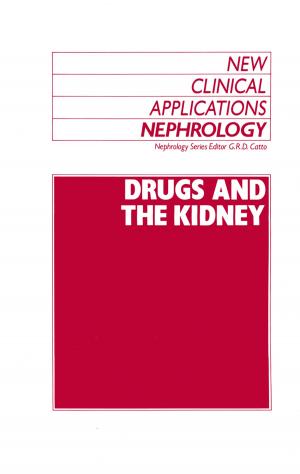The Organized Criminal Activities of the Bank of Credit and Commerce International: Essays and Documentation
In memoriam David Whitby
Nonfiction, Social & Cultural Studies, Social Science, Crimes & Criminals, Criminology, Political Science| Author: | ISBN: | 9789401734134 | |
| Publisher: | Springer Netherlands | Publication: | April 17, 2013 |
| Imprint: | Springer | Language: | English |
| Author: | |
| ISBN: | 9789401734134 |
| Publisher: | Springer Netherlands |
| Publication: | April 17, 2013 |
| Imprint: | Springer |
| Language: | English |
face. As myoid boss when I joined the discout market - who had worked as a "bond-salesman" on Wall Street during the "Great Crash" of 1929, through the Credit Anstalt crash, and served in British military intelligence during the Second World War - always used to say: "Remember! The telephone is not a secure instrument. " During the 1960s, foreign banks had flooded into London in pursuit of Eurodollar deposits. Arabs were spending their new found oil wealth in West End casinos. Ex change Control regulations were tight. In 1971, when our story begins, new "banks" on the fringe took advantage of the property boom, fuelled by Tory Chancellor Barber's first Budget. The discount houses (whose functions and special privileges at the Bank were soon arcane) became active traders in US dollar and foreign currency paper, and took stakes in the new money brokers (or "barrow boys," as the snobs called them, since the sharpest brokers were mainly Cockney Eastenders). While the "gentleman's club" was quickly being replaced by the fast growing "interbank swaps" market (now LIFFE), the discount houses had found a new role to pla- opening representative offices overseas (Gillett Brothers, where I was then chairman, in Southern Africa, UAE, Australia and Singapore, with brokering subsidiaries in Europe, Far East, and North America) - gathering market intelligence around the world, as the invisible "eyes and ears" of the Bank of England.
face. As myoid boss when I joined the discout market - who had worked as a "bond-salesman" on Wall Street during the "Great Crash" of 1929, through the Credit Anstalt crash, and served in British military intelligence during the Second World War - always used to say: "Remember! The telephone is not a secure instrument. " During the 1960s, foreign banks had flooded into London in pursuit of Eurodollar deposits. Arabs were spending their new found oil wealth in West End casinos. Ex change Control regulations were tight. In 1971, when our story begins, new "banks" on the fringe took advantage of the property boom, fuelled by Tory Chancellor Barber's first Budget. The discount houses (whose functions and special privileges at the Bank were soon arcane) became active traders in US dollar and foreign currency paper, and took stakes in the new money brokers (or "barrow boys," as the snobs called them, since the sharpest brokers were mainly Cockney Eastenders). While the "gentleman's club" was quickly being replaced by the fast growing "interbank swaps" market (now LIFFE), the discount houses had found a new role to pla- opening representative offices overseas (Gillett Brothers, where I was then chairman, in Southern Africa, UAE, Australia and Singapore, with brokering subsidiaries in Europe, Far East, and North America) - gathering market intelligence around the world, as the invisible "eyes and ears" of the Bank of England.















